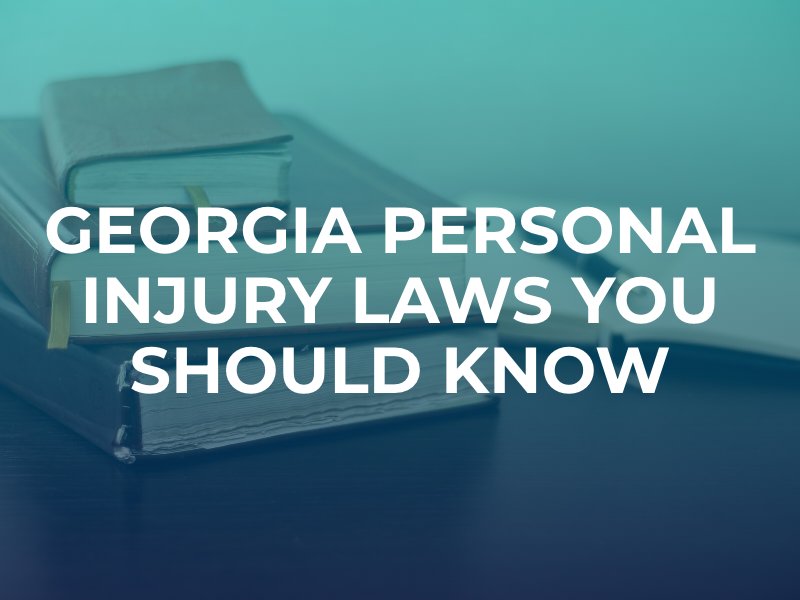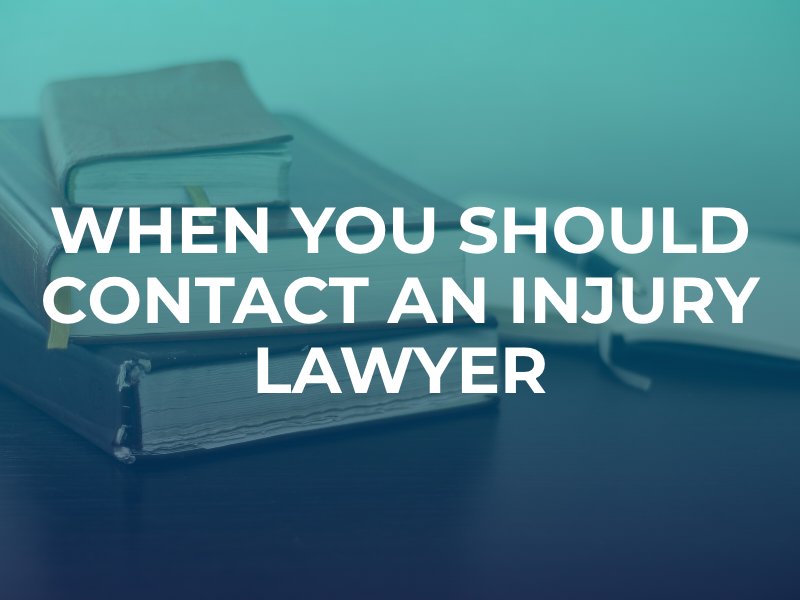Georgia Personal Injury Laws You Should Know
Individuals who sustain an injury caused by the negligent actions of another individual or entity should be able to recover compensation for their losses. This is typically done either through a settlement with an insurance carrier or as a result of a civil personal injury lawsuit against the party. However, there are various important personal injury laws in Georgia that you need to know if you are considering a claim against another party.

Georgia Personal Injury Statute of Limitations
When we turn to Georgia Code section 9-3-33, we can see that the Georgia personal injury statute of limitations is two years from the date and incident occurs. This means that after any type of accident, the injury victim has a two-year window with which to file a lawsuit against the alleged negligent party. In the event the lawsuit is not filed within this specific time frame, this means that the case will be dismissed, and the person will lose their right to recover compensation for their losses.
There are certain circumstances where the statute of limitations can be extended (tolled):
- If a person is under the age of 18 at the time the incident occurs, then the statute of limitations clock will not begin to run until the individual turns 18.
- If the defendant leaves the state after the incident occurs, but before the plaintiff is able to file a lawsuit, then their absence will likely not be counted towards the two-year statute of limitations.
- There are exceptions to the statute of limitations for when a crime has been committed in the process of the injury occurring. Typically, the statute of limitations clock will not begin ticking until the criminal case is resolved.
Comparative Fault Laws in Georgia
Not every personal injury case in Georgia is straightforward. Yes, sometimes there is a single party at fault for an incident, but there are often times when two or more parties share fault for a single incident. This can complicate the process of determining who recovers how much compensation.
In Georgia, there is a modified comparative negligence system in place for these situations. This system follows the 50% rule. If an individual is more than 50% responsible for causing their injuries, then they will be unable to recover compensation for their losses. If a person is less than 50% responsible for causing their own injuries, then they can still recover compensation, but this compensation will be reduced depending on their percentage of fault.
For example, if an individual sustains $10,000 worth of medical bills and other economic losses as a result of an injury caused by another party, but a jury determines that they were 30% responsible for the injury, then they would receive $7,000 instead of the complete $10,000. The $3,000 less accounts for their 30% of the fault.
Dog Bite Laws in Georgia
When examining Georgia Code section 51-2-7, we can see that Georgia law will hold dog owners financially responsible for any bite injuries or other types of injuries caused by their dog if they allowed their dog to run loose in violation of local leash laws or if the dog is known to have a propensity for aggression.
Georgia law requires dog owners to control their pets at all times. If they fail to do so and the dog causes an injury, it is almost a certainty that the dog owner will be responsible for paying compensation to the injury victim.
In the event a bite injury or other type of injury occurs, but the dog was not in violation of the leash law, and if the dog does not have a propensity for aggression that anyone knew about, there will not likely be a strict liability rule applied. In these situations, it would be necessary for the injury victim to prove that the dog should be classified as a “dangerous dog” in order for the dog owner to be held financially responsible.
Damage Caps for a Georgia Personal Injury Case
There are many states around the country that place caps, or limitations, on how much compensation individuals can receive for various types of personal injury claims. Often, states place caps on the non-economic damages available to individuals, which constitutes compensation for things like physical and emotional pain and suffering.
In Georgia, there are no caps in place for personal injury lawsuit damages. This includes having no cap for economic losses such as medical bills, lost wages, property damage expenses, and out-of-pocket expenses. There are also no limitations on the total amount of non-economic damages individuals can receive if their claim is successful.
We should note that Georgia law has been very back and forth on limitations for medical malpractice non-economic damages. Even though state legislators put a cap in place, the state Supreme Court overturned these caps in 2010.

Do You Need a Lawyer for a Personal Injury Claim?
State law does not require individuals to work with an attorney if they want to move forward with a personal injury lawsuit in civil court. Individuals are free to file these claims on their own and work to pursue compensation. However, it is important to understand that an attorney can bring significant benefits to a case, particularly for claims surrounding more severe injuries.
A lawyer will have a thorough understanding of all the walls related to a specific personal injury claim in Atlanta. Additionally, the reality is that taking these cases to court is challenging for those without much legal experience. Often, individuals with limited legal experience end up going against insurance carriers and seasoned legal teams, leaving them at a disadvantage.
We encourage any person who has sustained an injury caused by the negligence of another party to work with a Georgia personal injury lawyer who will take their case on a contingency fee basis, which means the injury victim will not have to pay any legal fees until the attorney recovers the compensation they need. Under this type of fee arrangement, individuals will not pay any legal fees if the attorney does not win their case.